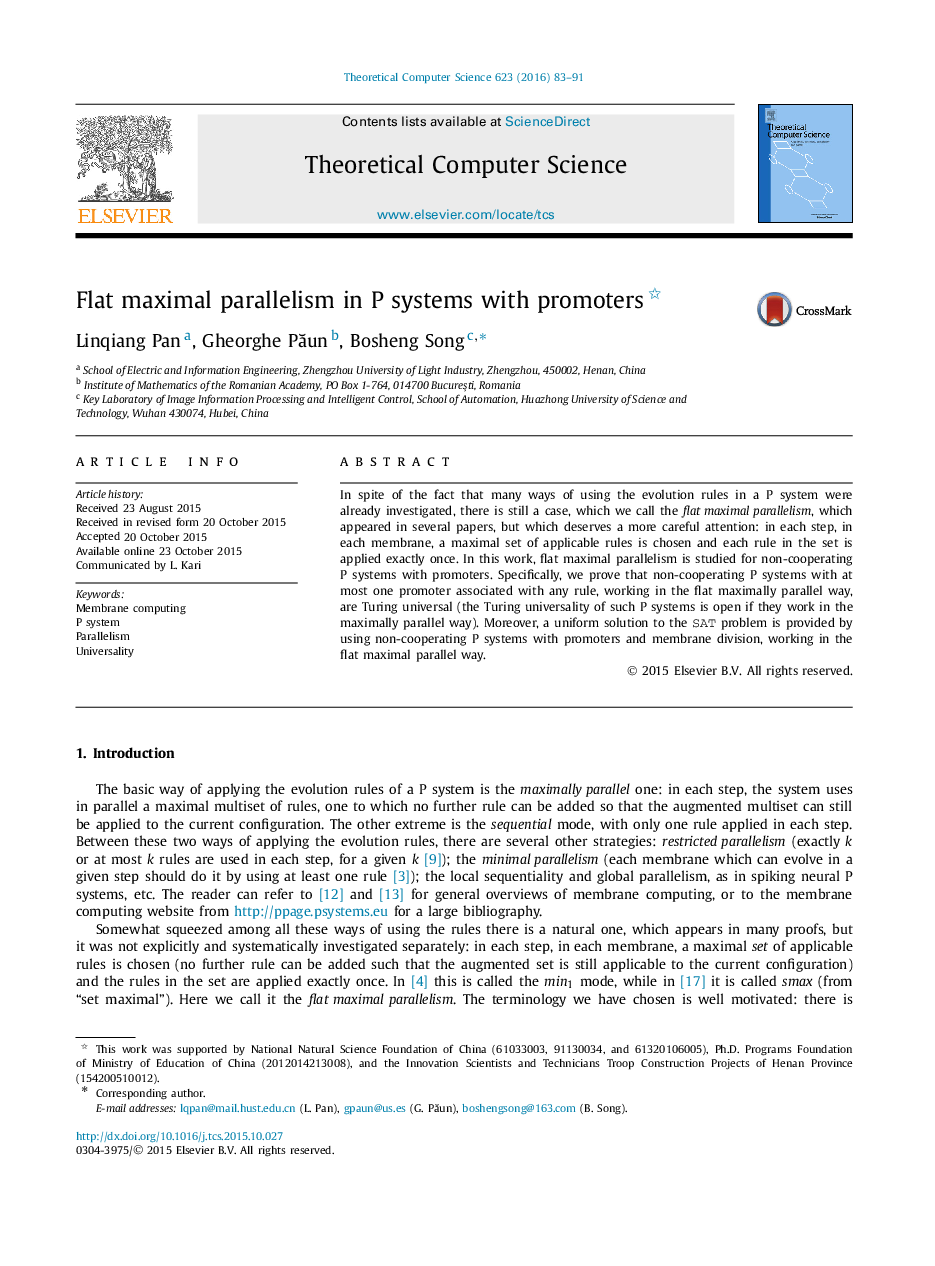| Article ID | Journal | Published Year | Pages | File Type |
|---|---|---|---|---|
| 433696 | Theoretical Computer Science | 2016 | 9 Pages |
In spite of the fact that many ways of using the evolution rules in a P system were already investigated, there is still a case, which we call the flat maximal parallelism, which appeared in several papers, but which deserves a more careful attention: in each step, in each membrane, a maximal set of applicable rules is chosen and each rule in the set is applied exactly once. In this work, flat maximal parallelism is studied for non-cooperating P systems with promoters. Specifically, we prove that non-cooperating P systems with at most one promoter associated with any rule, working in the flat maximally parallel way, are Turing universal (the Turing universality of such P systems is open if they work in the maximally parallel way). Moreover, a uniform solution to the SAT problem is provided by using non-cooperating P systems with promoters and membrane division, working in the flat maximal parallel way.
